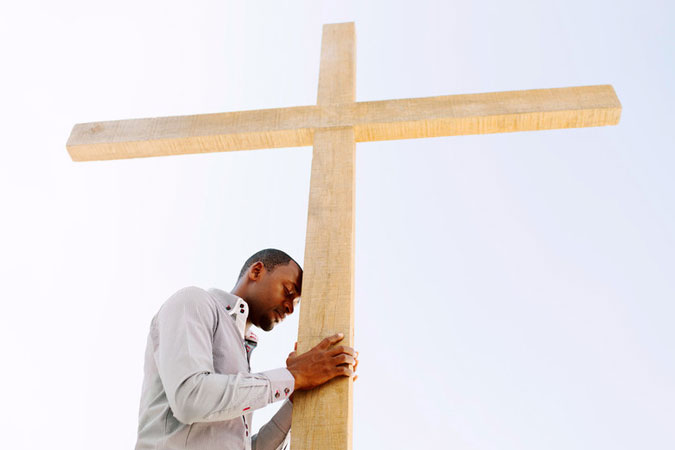
One of the goals of the New Evangelization is to simplify—without making simplistic—the central message of the Gospel so that it is accessible to all. A person shouldn’t have to be a theologian to understand the Good News! With that in mind, I have summarized the gist of our salvation narrative in three words: rescue, restoration, and reassurance. This is the heart of the kerygma—the primary proclamation of the Gospel. Through the life, teachings, miracles, Death, Resurrection, and Ascension of Jesus Christ, we are rescued, restored, and reassured. Let’s visit the first of the Three Rs, rescue.
It’s interesting to note that pop songs about love often include references to being rescued:
- The Rolling Stones sang of coming to your “emotional rescue.”
- The Dixie Chicks sang of being “past the point of rescue.”
- Neil Young sang that “someone’s gonna rescue you.”
- Ryan Adams sang of the “rescue blues.”
- Numerous artists, beginning with Fontella Bass, sang “rescue me.”
- Chicago sang “rescue you.”
In the love story that is the Bible, God continually rescues his people, beginning with the story of Noah and the flood—God’s first rescue mission—to illustrate that he alone can save us from the torrents of sin. Indeed, the Bible is full of rescue stories, including Daniel’s rescue from the lion’s den; Jonah’s rescue from the belly of the whale; the rescue of Shadrach, Meshach, and Abednego from the fiery furnace; Jeremiah’s rescue from a cistern; and, of course, God’s rescue of the Jewish people from slavery in Egypt and again from Exile in Babylon (the central rescue stories of the Old Testament).
The greatest rescue story, however, is the rescue of all humankind by Jesus Christ through his Cross and Resurrection. Jesus’ entire ministry was one of rescue. He rescued people who were blind, deaf, hemorrhaging, caught in sin, paralyzed, lame, possessed, bent over, leprous, and, yes, even dead.
God continues to rescue his people today from despair, physical pain, the pain of rejection, anxiety, financial problems, relationship struggles, abuse, addictions, natural disasters, depression, homelessness, and sickness. God accomplishes this through members of his “rescue team,” disciples of his Son, Jesus Christ. Each of us can reflect on those people in our lives who have assisted God in rescuing us from various problematic and even painful circumstances. We, in turn, are called to serve as members of God’s rescue team, reaching out to those in need and bringing God’s mercy to them.
Those of us who are privileged to serve as catechists are on the front lines of God’s rescue mission, bringing the Good News of God’s mercy to those we teach and equipping them to serve as the next generation of God’s “first responders.”
Who are the people that helped God rescue you at some point in your life from a challenging, painful, or debilitating circumstance? Who are the people that you are called to help God rescue?





Be the first to comment